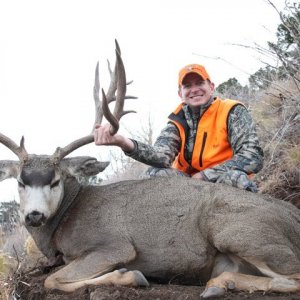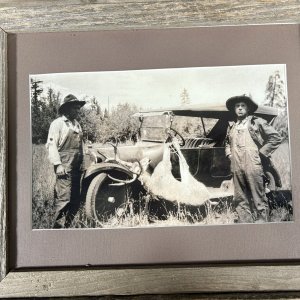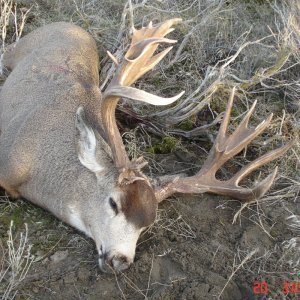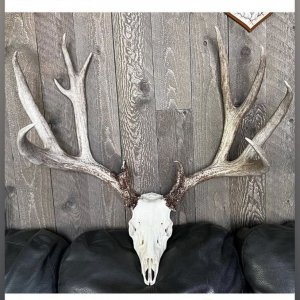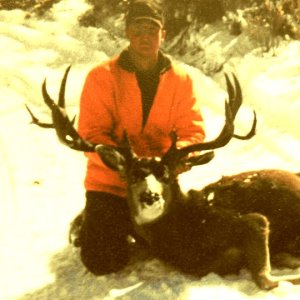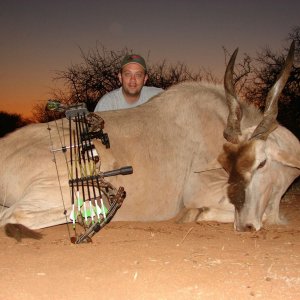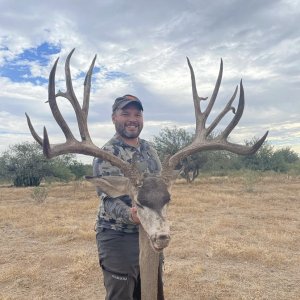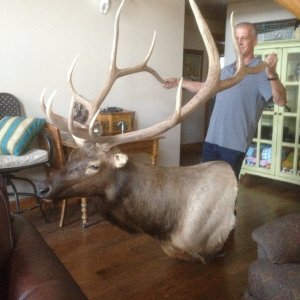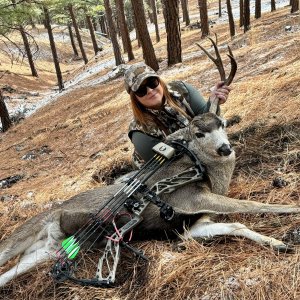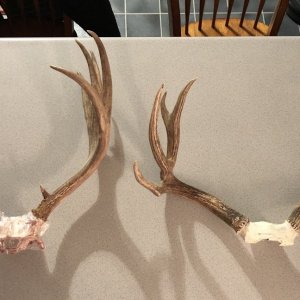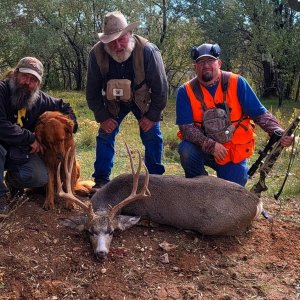The Nevada Department of Wildlife (NDOW) authorized an emergency depredation antelope hunt and will follow that with an aggressive relocation effort of antelope in the area destroyed by recent fires in eastern Nevada. Wildfires in the late summer of 2006 destroyed more than half of the critical antelope winter range in management units 061, 062, 064, 071 and 073, to the north and west of Elko. Emergency predation management is already in effect.
Biologists concluded that the burned winter habitat, coupled with habitat degraded by the Aroga moth infestation, is not sufficient to sustain the 1,000-plus antelope in the area. If the animals are not harvested or relocated, there will likely be a significant die-off this winter.
The emergency depredation hunt will occur from September 18th to October 1st, 2006. The special hunt aims to remove 200 antelope. Two hundred previously unsuccessful applicants from the Alternate List for 2006 antelope hunts in Units 061, 062, 064, 071 and 073 will be contacted by the Department to ask if they are willing to participate in this hunt. Following the hunt, NDOW plans to capture another 100-150 antelope to relocate to other viable parts of the state. Depending upon habitat conditions, NDOW may attempt another drop-net capture of 100-200 more antelope, if additional approved release sites are identified.
NDOW?s long-term plans include an aggressive re-seeding effort, especially within the Marvel and south Suzie Creek areas. NDOW will monitor habitat conditions and antelopepopulations, and will recommend management and harvest strategies to keep antelope numbers in the affected areas in balance with habitat at or below 600-700 animals.
NDOW has never before conducted a relocation and emergency harvest of this magnitude. It is a result of the disastrous effects of cheatgrass, an invasive weed, which has spread rapidly statewide. Cheatgrass has served as the catalyst to an accelerated cycle of more frequent and severe wildfires.
The Nevada Department of Wildlife is the state agency responsible for the protection, restoration and management of fish and wildlife resources, and the promotion of boating safety on Nevada?s waters. Wildlife offices are located in Las Vegas, Henderson, Winnemucca, Fallon, Elko, and Reno. For more information, contact the agency web site at www.ndow.org.
Wish I would have applied this year...
Biologists concluded that the burned winter habitat, coupled with habitat degraded by the Aroga moth infestation, is not sufficient to sustain the 1,000-plus antelope in the area. If the animals are not harvested or relocated, there will likely be a significant die-off this winter.
The emergency depredation hunt will occur from September 18th to October 1st, 2006. The special hunt aims to remove 200 antelope. Two hundred previously unsuccessful applicants from the Alternate List for 2006 antelope hunts in Units 061, 062, 064, 071 and 073 will be contacted by the Department to ask if they are willing to participate in this hunt. Following the hunt, NDOW plans to capture another 100-150 antelope to relocate to other viable parts of the state. Depending upon habitat conditions, NDOW may attempt another drop-net capture of 100-200 more antelope, if additional approved release sites are identified.
NDOW?s long-term plans include an aggressive re-seeding effort, especially within the Marvel and south Suzie Creek areas. NDOW will monitor habitat conditions and antelopepopulations, and will recommend management and harvest strategies to keep antelope numbers in the affected areas in balance with habitat at or below 600-700 animals.
NDOW has never before conducted a relocation and emergency harvest of this magnitude. It is a result of the disastrous effects of cheatgrass, an invasive weed, which has spread rapidly statewide. Cheatgrass has served as the catalyst to an accelerated cycle of more frequent and severe wildfires.
The Nevada Department of Wildlife is the state agency responsible for the protection, restoration and management of fish and wildlife resources, and the promotion of boating safety on Nevada?s waters. Wildlife offices are located in Las Vegas, Henderson, Winnemucca, Fallon, Elko, and Reno. For more information, contact the agency web site at www.ndow.org.
Wish I would have applied this year...


